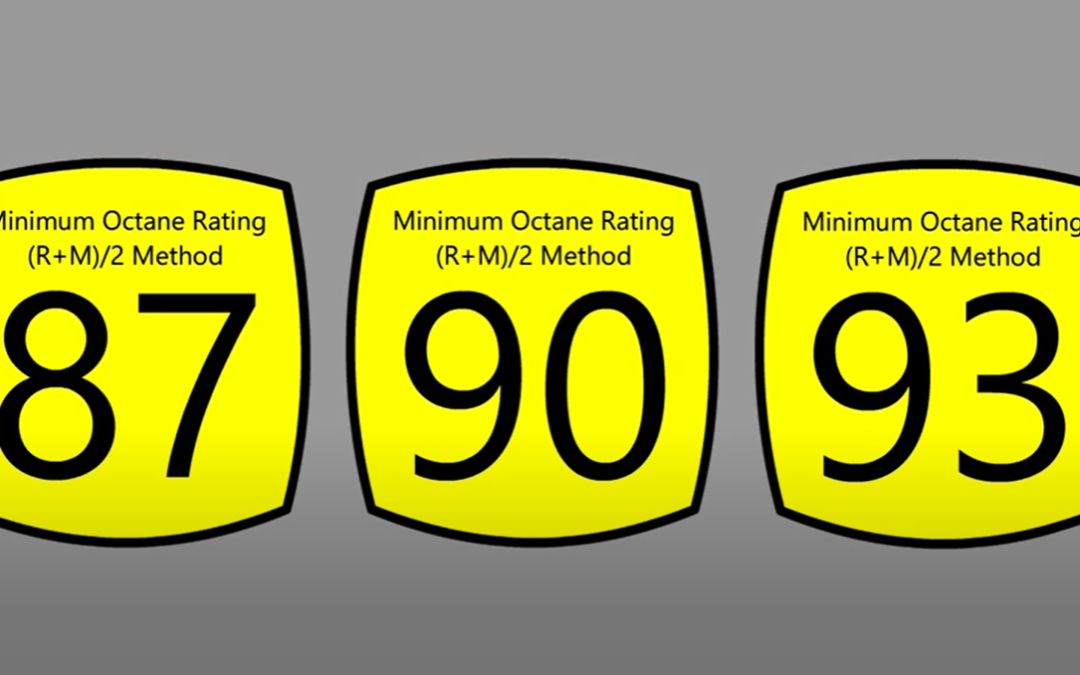
Faced with the constant rise in fuel prices, it is legitimate to wonder which type of gasoline is most cost-effective and beneficial for your vehicle. Should you opt for regular gasoline, which is cheaper, or prioritize premium or high-octane fuel? And what do the numbers like 87, 91, or 89 really mean? Understanding the octane rating will alswer those questions.
The meaning of the octane rating
It is crucial to understand that the number you see at the pump indicates the octane rating. Octane, a component of petroleum, plays a crucial role in the fuel’s resistance to detonation. The higher the octane rating, the more the fuel resists combustion, thus optimizing your vehicle’s performance.
Handy tip: Fuel with a higher octane rating helps keep your engine clean, contributing to reduced pollutant emissions. It also promotes the health of exhaust systems, pistons, and catalytic converters.
Why choose a higher octane rating?
You might fear that this choice will be more expensive. However, consider this: the costs incurred by a damaged engine can far exceed those of higher-quality fuel. Inside the engine cylinders, gasoline is subjected to extreme temperatures and pressures. A higher octane rating prevents spontaneous ignition of the air-fuel mixture. Therefore, “premium” gasoline with an octane rating of 91 or higher would be ideal.
Dispelling misconceptions about fuel economy
It is important to note that choosing “premium” fuel does not necessarily mean you will be able to drive longer before needing to refuel. The difference in mileage between premium and regular gasoline is usually minimal.
Handy tip: Always follow the manufacturer’s recommendations regarding the optimal mileage to cover with a full tank. If you notice a significant decrease in mileage, don’t hesitate to visit our CAA garage for an accurate diagnosis.
Understanding the octane rating: Does premium gasoline clean better?
Another common misconception concerns the supposed cleaning properties of premium gasoline. Despite certain advertisements, paying more does not necessarily imply a higher quantity of detergents in your fuel. All gasolines – regular, premium, and others – contain detergents. It is the octane rating that allows for more precise combustion, contributing to the cleanliness and integrity of your engine.
In conclusion, although higher octane fuel may cost more, it offers notable benefits, including better engine protection and cleaner combustion. However, it should be remembered that all gasolines contain detergents and the efficiency of combustion is linked to the octane rating.
Handy tip: Don’t be fooled by myths related to fuel economy. Choosing higher octane gasoline does not automatically mean you will save on overall fuel consumption. Rely on the manufacturer’s recommendations for the type of fuel to use and the frequency of refills.
And in case of doubt, don’t forget that our team of professionals at the CAA garage is always available to help you understand the specific needs of your vehicle. If you believe that your mechanical system has been affected by lower-quality gasoline, we will be happy to carry out a detailed analysis for you.
Ultimately, spending a little more on higher octane fuel can contribute to the longevity of your engine, pistons, catalytic converters, and other key components of your vehicle. However, it is important not to be swayed by preconceived notions that more expensive gasoline would automatically provide better performance or fuel economy.
Final tip: Instead of simply choosing the most expensive gasoline, try to understand your vehicle’s specifications and the manufacturer’s recommendations. This will help you make an informed decision and get the best possible fuel efficiency.
At the CAA mecanical garage, our goal is to help you maintain your vehicle in good working condition while maximizing its energy efficiency. We are here to answer all your questions and help you make the best decisions for your vehicle and your wallet. Schedule your auto garage service here.



